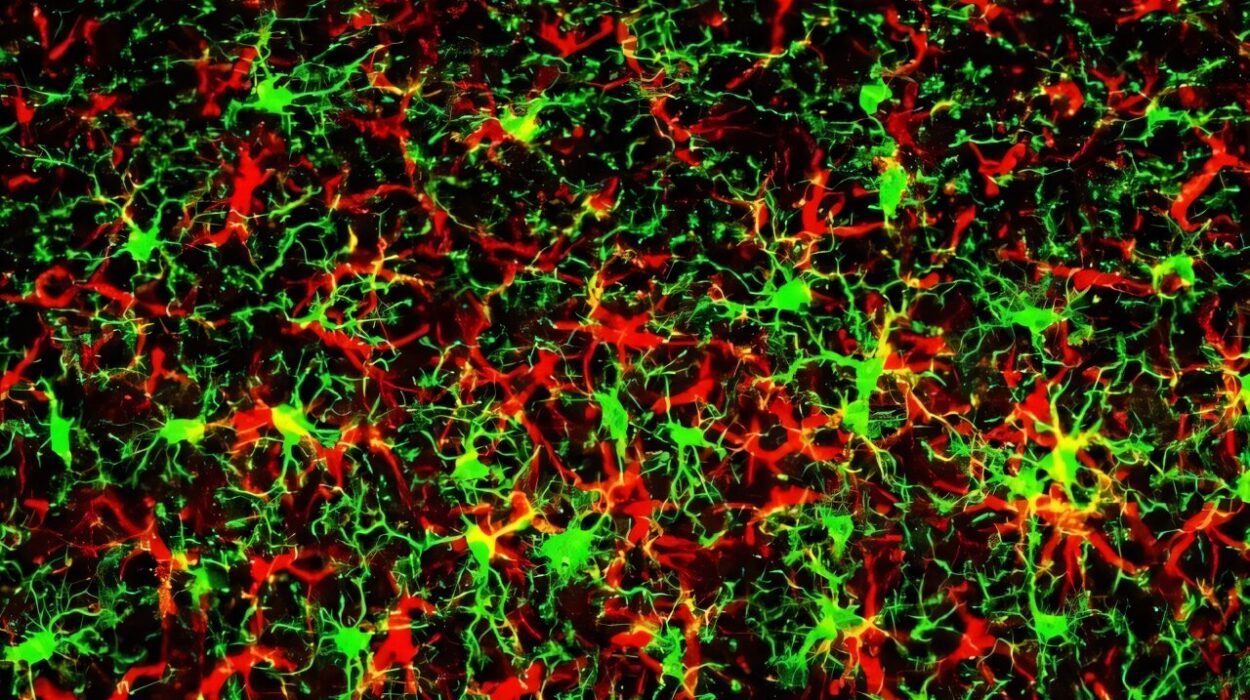Our skin is more than just a covering. It is a living, breathing organ—the body’s largest—that tells the story of our life. It records our laughter in the fine lines around our eyes, our worries in the furrows of our brow, and our adventures in freckles and scars. With time, this story becomes more vivid, because aging is inevitable. Yet, how our skin ages—and how gracefully we embrace it—depends not only on genetics but also on how we care for it.
The pursuit of youthful, radiant skin is not vanity alone; it is deeply tied to health, self-confidence, and the human desire to feel vibrant at any age. While creams and cosmetic procedures flood the beauty market, science continues to reveal that some of the most powerful strategies for skin health come from nature and lifestyle choices. Aging cannot be stopped, but it can be softened, managed, and even celebrated with the right care.
What Happens to Skin as We Age?
To understand how to care for aging skin, we must first understand what aging does at the cellular level.
Skin is made up of three main layers:
- The epidermis, the outermost barrier that protects us from environmental damage.
- The dermis, beneath it, rich with collagen and elastin that provide strength and elasticity.
- The subcutaneous layer, a cushion of fat that supports the upper layers and gives the skin plumpness.
As the years pass, several changes occur:
- Collagen and elastin breakdown: Collagen is the protein scaffold of the skin, and elastin keeps it springy. With age, production slows, and existing fibers degrade, leading to sagging and wrinkles.
- Thinner epidermis: The outer layer becomes more fragile and less effective at retaining moisture, making skin drier and more prone to damage.
- Reduced oil production: Sebaceous glands slow down, leading to rougher texture and dullness.
- Pigment changes: Melanin-producing cells become irregular, creating age spots or uneven tone.
- Slower cell turnover: Dead cells accumulate, reducing radiance.
- Decline in circulation: Less blood flow means fewer nutrients reach the skin, impairing its natural glow.
While these changes are natural, their pace and severity are influenced by external factors like sunlight, diet, stress, pollution, and lifestyle. This is why two people of the same age can look remarkably different.
The Science of Natural Skin Care
Skin care is not about chasing eternal youth but about preserving health, resilience, and vitality. Natural strategies support the body’s own regenerative processes, working with biology instead of fighting against it. They focus on nourishing the skin, protecting it from damage, and encouraging its innate ability to repair.
Unlike quick fixes, natural skin care is rooted in patience and consistency. Science shows that while no herb or oil can magically erase decades, many natural approaches genuinely improve hydration, reduce oxidative stress, and protect against damage that accelerates aging.
Sunlight: Friend and Foe
Nothing affects skin aging more than the sun. Ultraviolet (UV) radiation penetrates deep into the dermis, damaging collagen and DNA. Scientists call this photoaging, and it accounts for up to 80% of visible aging signs like wrinkles, roughness, and pigmentation.
Yet, sunlight is also our primary source of vitamin D, essential for bone health, immunity, and even mood regulation. The key lies in balance: getting enough light for health while protecting against its harmful effects.
Practical natural strategies include:
- Seeking shade during peak hours (10 a.m. to 4 p.m.).
- Wearing protective clothing like wide-brimmed hats.
- Using broad-spectrum mineral sunscreens with zinc oxide or titanium dioxide.
- Allowing short, controlled sun exposure (10–15 minutes a few times per week) to support vitamin D production.
By respecting the sun without avoiding it entirely, we protect our skin’s structure while nurturing whole-body wellness.
Nutrition: Feeding the Skin From Within
Our skin reflects what we eat. Nutrients are the raw materials the body uses to build collagen, neutralize free radicals, and repair tissue. Diet, therefore, is one of the most powerful natural tools for slowing skin aging.
Antioxidants: The Skin’s Shield
Every day, UV rays, pollution, and stress generate free radicals—unstable molecules that damage cells and accelerate aging. Antioxidants neutralize them, preventing premature wrinkles and pigmentation.
Foods rich in antioxidants include:
- Brightly colored fruits and vegetables (berries, carrots, spinach, kale, tomatoes).
- Green tea, with its catechins that protect collagen.
- Dark chocolate (in moderation), rich in flavonoids that improve circulation to the skin.
Healthy Fats: The Natural Moisturizers
Omega-3 and omega-6 fatty acids, found in fatty fish, walnuts, flaxseeds, and chia seeds, keep cell membranes flexible and strong. They lock in moisture, reduce inflammation, and support smooth, supple skin.
Protein: The Collagen Builder
Collagen and elastin are proteins, so adequate dietary protein is essential. Lean meats, beans, lentils, and eggs provide amino acids necessary for skin repair.
Hydration: The Fountain of Youth
Water doesn’t magically erase wrinkles, but dehydration worsens dryness, dullness, and fine lines. Staying hydrated keeps the skin barrier strong and supports natural detoxification processes.
In short, every bite is either building radiant skin or feeding inflammation. Choosing whole, nutrient-rich foods is one of the most effective anti-aging strategies nature offers.
Sleep and Skin Renewal
They don’t call it “beauty sleep” for nothing. During deep sleep, the body releases growth hormone, which stimulates cell repair and regeneration. Blood flow to the skin increases, delivering oxygen and nutrients that promote healing and radiance.
Chronic sleep deprivation, on the other hand, raises stress hormones like cortisol, which break down collagen and trigger inflammation. It also disrupts the balance of moisture, leaving skin dry and irritated.
Prioritizing 7–9 hours of quality sleep, with regular routines and dark, quiet environments, is a natural, powerful way to maintain youthful skin.
Stress and Skin: An Unseen Connection
Emotions show on our faces. Stress does not only weigh on the mind—it ages the skin. Cortisol, the stress hormone, increases oil production, which can worsen acne. It also impairs the skin’s barrier function, making it more prone to irritation and infection. Over time, chronic stress accelerates collagen breakdown, deepening wrinkles.
Natural stress-relief practices—such as mindfulness meditation, yoga, breathwork, or simply spending time in nature—have been shown to lower cortisol levels and improve skin health. When the mind rests, the skin follows.
Natural Topical Remedies That Support Aging Skin
While lifestyle and nutrition form the foundation, topical care can complement the process. Natural ingredients, when used wisely, offer hydration, protection, and gentle rejuvenation.
- Aloe vera: Hydrates deeply and soothes inflammation, supporting healing of dry or irritated skin.
- Rosehip oil: Rich in vitamin C and essential fatty acids, it improves elasticity and reduces fine lines.
- Green tea extract: Applied topically, it protects against UV damage and reduces redness.
- Honey: A natural humectant, it draws moisture into the skin and has antimicrobial properties.
- Oat extracts: Calm irritation and strengthen the skin barrier.
It’s important to remember that natural does not always mean risk-free. Patch testing is essential, and medical-grade formulations often provide more consistent results. Still, nature’s remedies often offer gentleness and fewer synthetic additives.
Movement and Circulation: Exercise for Radiance
Exercise is medicine for the skin. When we move, circulation improves, delivering oxygen and nutrients to skin cells while carrying away waste. Regular physical activity also reduces inflammation and lowers stress hormones.
Sweating during exercise clears out pores, while post-workout blood flow gives that natural “glow.” Over time, exercise helps maintain skin thickness and elasticity by supporting collagen production.
Whether it’s walking, dancing, yoga, or strength training, movement is a free and natural anti-aging tool that benefits the whole body.
The Role of Genetics: Predisposition and Possibility
Not all skin ages the same. Genetics play a significant role in determining whether we wrinkle early, develop pigmentation, or maintain plumpness longer. For example, people with darker skin tones often have more melanin, which offers natural protection against photoaging. Others may inherit stronger collagen structures.
But while genetics load the gun, lifestyle pulls the trigger. Research consistently shows that up to 70–80% of visible aging comes from external factors—especially sun exposure, smoking, diet, and stress. This means that natural care can dramatically alter how our genetic story unfolds on our skin.
Avoiding Hidden Enemies of Skin Health
Several habits silently accelerate skin aging:
- Smoking: Nicotine narrows blood vessels, depriving skin of oxygen and nutrients. Smoke also generates free radicals that destroy collagen.
- Excessive alcohol: Dehydrates the skin and dilates blood vessels, leading to redness and broken capillaries.
- Pollution: Urban air contains toxins that increase oxidative stress and weaken the skin barrier.
- Over-cleansing or harsh products: Stripping away natural oils damages the skin’s protective layer.
Avoiding or minimizing these factors is as important as any positive natural strategy.
Aging Gracefully: Beyond Wrinkles and Lines
While much attention is given to the visible signs of aging, true skin care is not about erasing every line. It is about supporting the skin so it reflects vitality, health, and authenticity at every age. Fine lines can tell stories of laughter. Freckles can remind us of summers past. Aging gracefully means accepting changes while giving our skin the best chance to stay resilient and radiant.
There is also a profound psychological element. Studies show that people who view aging positively not only feel better about their appearance but also live longer, healthier lives. Confidence, self-love, and acceptance are as much a part of natural skin care as oils and vitamins.
The Future of Natural Skin Care
Science is increasingly validating ancient wisdom. Ingredients like turmeric, green tea, and plant oils are being studied for their molecular effects on inflammation and collagen. Probiotics are being explored for their impact on the skin microbiome, which plays a role in acne, sensitivity, and even aging.
The future may blend traditional natural remedies with modern biotechnology—using plant compounds in more stable, potent formulations that support the skin from both inside and out.
Conclusion: A Lifelong Relationship with Skin
Our skin is with us from our first breath to our last. It protects us, feels for us, and tells the story of our journey. Aging is not its failure but its natural evolution. Natural skin care is not about denying time but about walking with it gracefully, nourishing the skin so it glows with vitality no matter the decade.
With balanced sunlight, nourishing foods, restful sleep, stress management, gentle natural remedies, and movement, we gift our skin the tools to age not with fear but with radiance. Because ultimately, beautiful skin is not the skin without wrinkles—it is the skin that reflects health, care, and a life well lived.






